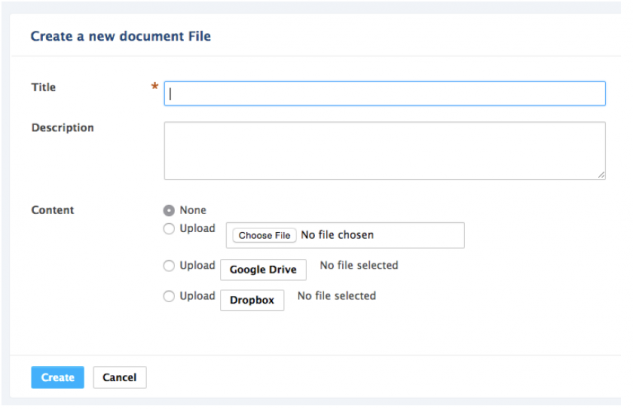Nuxeo Platform 7.3 Released: Automates Elasticsearch Security, Integrates With Google Drive & Dropbox

Nuxeo Platform is an open-source content management system used primarily by architects and developers to build, deploy, and run content-centric business applications.

This latest release from Nuxeo, Nuxeo Platform Fast Track 7.3, brings about integration with cloud file sharing platforms, secure Elasticsearch queries with built-in permission checks, better branch management and new options to store files locally or in the cloud.
There's a lot ere's a detailed look at the new features and improvements introduced with Nuxeo Platform FT 7.3.
Nuxeo Live Connect
First up, this new feature provides Nuxeo developers with native integration with Cloud-Based Enterprise File Sync and Share (EFSS) platforms. Nuxeo has added native support to natively connect to files stored in EFSS systems including Google Drive and Dropbox.

Editors on these platforms, e.g. Google Docs, Slides, and Sheets, can be viewed and accessed within the Nuxeo environment, providing free and open collaboration without having to copy files and store them locally.
With this release, Nuxeo customers can not only access the standard editors on these platforms but also the wealth of third party editors that have been created. Notably, two or more users can collaborate on a given file – for example, a legal contract or a press release being readied for distribution – within the Nuxeo environment or outside of it while maintaining the approval workflow and publishing capabilities.
Elasticsearch Query API with Automatic, Dynamic Security Filtering
Developers can now use a new Elasticsearch API to query the Nuxeo repository.
This new feature also allows developers to build custom Elasticsearch frontend applications, with no need to worry about user authentication or permissioning, which are now automatically enforced by the Nuxeo Platform.
Furthermore, Nuxeo developers are now able to use the native Elasticsearch Query DSL, with the Elasticsearch client of their choice (JavaScript, Python, etc.), to build search functionality in the Web UI of the Nuxeo Platform. From here on out, Nuxeo will dynamically apply permission filters to end user search queries, ensuring that only those objects that the user has access to are presented in search results.
Branch Management and Collaborative Configuration with Nuxeo Studio
Nuxeo users can create and manage branches of their Nuxeo Studio Projects.

This allows developers to collaborate while building applications by configuration. Development time can be accelerated and Nuxeo developers can easily use Nuxeo Studio in their development workflow and integration tools.
Cloud Media Publishing
Nuxeo customers now have an easy way to push digital media, managed by the Nuxeo Platform, to video publishing platforms. The 7.3 release introduces the ability to publish videos directly to YouTube and Wistia out of the box with the ability to easily add other providers.
 Once the video is published, users can retrieve URLs, embed an HTML snippet to publish on an external website, and view analytics directly from the video platform inside of Nuxeo.
Once the video is published, users can retrieve URLs, embed an HTML snippet to publish on an external website, and view analytics directly from the video platform inside of Nuxeo.
Hierarchical Storage Management (HSM)
Last but not least, is the introduction of HSM.
Nuxeo developers can now implement a HSM policy that complies with business rules while also improving application performance and storage cost efficiencies.
The platform's new File Storage Dispatcher empowers developers to specify which BLOBs are to be stored in Amazon Simple Storage Services (S3), locally, or on a different on-premises storage system. This can be determined based on multiple criteria, including document metadata, file path, file type, or as specified within written code.
Nuxeo's CEO, Eric Barroca, made the following comments upon the release of version 7.3:
“Even though EFSS revolutionized the way people work together, adding this benefit to your business processes has required a copy and paste approach or, at best, upload them to your ECM. The business part, the information part hasn’t reacted. We are changing that.
With Nuxeo Live Connect, it’s time to revolutionize the way organizations use content to benefit their business.”
For more information on Nuxeo Platform FT 7.3, check out Nuxeo's official announcement.
Also, you can explore Nuxeo through our CMS Directory.